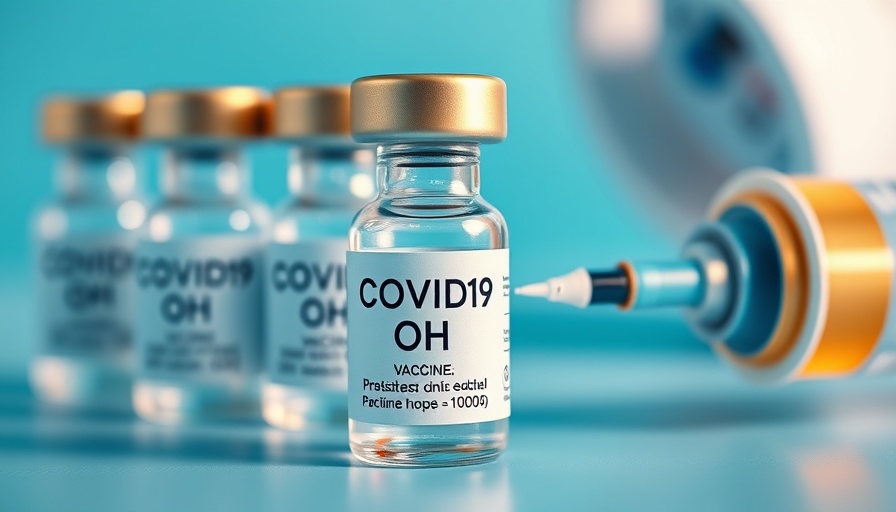
Understanding the Long-Term Effects of COVID-19 on Vascular Health
The COVID-19 pandemic has impacted our lives in ways we are still uncovering, particularly in terms of our health. A recent study highlights a concerning aspect: the potential acceleration of blood vessel aging due to COVID-19. This could significantly increase cardiovascular risks, particularly for women, who appear to be more affected than men. Understanding these changes is essential as we navigate post-pandemic health challenges.
Women at Greater Risk: Why Does It Matter?
Research has demonstrated that women are experiencing a more pronounced impact on their vascular health following COVID-19 infection. A significant finding from the study indicates that those who contracted the virus had stiffer blood vessels, equivalent to roughly five years of aging—raising their cardiovascular risk by about 3% for women around the age of 60. This raises critical questions about gender-specific health strategies that need to be developed in light of these findings.
What We Learned from the Multicenter Study
In a study that spanned 34 centers across 16 countries, researchers focused on 2,390 participants who differed in COVID-19 severity, from asymptomatic to intensive care. The results indicated marked differences across gender, with elevated pulse wave velocity (PWV) measurements in females post-infection. For instance, the most significant increase was seen in women admitted to intensive care— this suggests a need for further exploration of how the female immune response could be contributing to vascular damage.
Looking Ahead: Future Health Implications
The implications of this research are vast. As we become more aware of the long-term effects of COVID-19, there is an urgent need for frameworks that identify at-risk individuals, especially females. By being proactive, we can develop strategies aimed at early intervention, potentially preventing heart diseases that have become significant concerns in our aging population.
Healthy Living in a Post-COVID World
Understanding the implications of vascular aging due to COVID-19 reinforces the importance of adopting nourishing lifestyle changes. Nutrition, exercise, and mindfulness practices can play pivotal roles in countering some of these health impacts. A diet rich in whole foods, supplemented with antioxidants, can promote heart health, while regular physical activity ensures optimal blood circulation. Techniques like meditation and yoga can reduce stress and promote overall mental clarity and emotional well-being, which is crucial during these uncertain times.
What Can You Do?
Being informed about the risks is just the first step; it’s essential to take actionable steps towards maintaining heart health. Regular health check-ups focusing on cardiovascular wellness are vital. Incorporating physical activities like running, weight training, or even gentle yoga can significantly improve cardiovascular resilience. Additionally, monitoring your nutrition and making adjustments to include more plant-based options can improve both physical and mental health. Remember, every small change counts towards creating a healthy lifestyle.
Conclusion: Taking Charge of Your Health
Understanding how COVID-19 may influence vascular health empowers us to make informed decisions for our well-being. As new research unfolds, staying educated and making proactive health choices will help navigate this post-pandemic world. Take the time to evaluate your habits, and consider small yet impactful changes that can lead to a healthier you.
 Add Row
Add Row  Add
Add 




Write A Comment